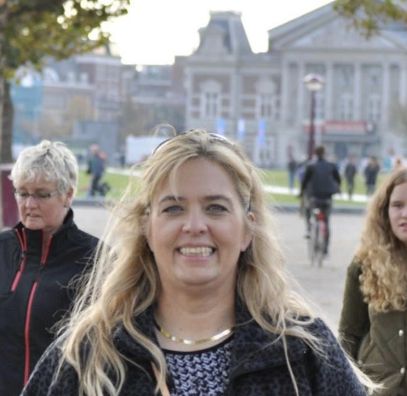A version of this feature ran in the December issue of BRAIN.
BOULDER, Colo. (BRAIN) — For our December magazine edition, we asked our State of Retail panel members: “How has COVID-19 affected your service department in terms of revenue, cost, hiring, and training?”
SEATTLE: Christiaan Bourdrez, owner Ride Bicycles

My gross sales are up approximately 50% at this time, and online sales have increased by just under 400%. My service department receipts have increased in close alignment with the increases in my overall business. I am paying more in service mechanics’ wages than last year to align with inflation and supply and demand, and I have also paid some extra labor increases to retain employees and get more productivity.
In terms of hiring and training, mechanics are always hard to find, but it’s been even more difficult since the increased unemployment benefits and MMT (helicopter money). Also, two of my best employees live with older family members and no longer work for me due to the risk of COVID exposure. With the cancellation of in-person industry events, we utilize YouTube and other online video resources, and it's up to us to organize time for the mechanics to do their extra training.
BOISE, Idaho: Diane Cutler, owner Spokey Joe’s Bikes & Gear

As a small, fairly new shop, we don’t have much history, so when the COVID-19 surge hit, we didn’t know how much growth was “normal,” and how much was due to the pandemic, so we simply dug down and worked harder and longer to get it all done. Our service revenue for April-October 2020 was over 20% of total revenue compared to the same time frame in 2019 where it was a little over 15%.
We tweaked some of our service rates over the past year, but it was more to do with settling into our niche than changes due to the pandemic. Likewise, all increases in compensation have been based on history and performance factors. We have opted to take a conservative wait-and-see approach to spending and new employees, and as such have not attempted to hire mechanics during the pandemic due to the uncertainty of how long-term demand will pan out. Our service department continues to maintain technical proficiency the same way as always, predominantly through manufacturers’ websites, videos, and technical support.
CHICAGO: Justyna Frank, co-owner Cosmic Bikes
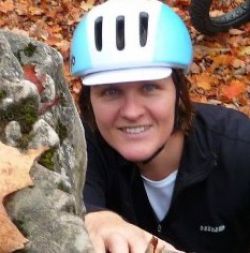
As a percentage of overall revenue, our labor revenues have actually decreased about two percentage points; however, our total sales are up by about 40%, so we’ve been doing a lot more labor, with the same staff, compared to previous seasons. We're lucky to have longtime experienced staff and a shop that allows for reasonable distancing to keep everyone safe.
We didn't really change most of our labor prices this season (although it's on the drawing board), but we did suspend less-profitable services during the summer in order to better manage our workload and optimize the mechanics' time. We also didn't permanently change the compensation structure, but we did pay out a peak season bonus to our service staff.
For training, we've relied heavily on manufacturers' online resources and videos to troubleshoot repairs that required familiarity with newer components, especially related to e-bikes. The vast majority of our repair work involves commuter, family, and touring bikes, which thankfully do not require training in cutting-edge technologies.
FULLERTON, Calif.: Mike Franze, owner Fullerton Bicycles and Buena Park Bicycles

COVID-19 has made it challenging to run our service department. Due to high volume, we added three service guys and went to an appointment-based system, and in the beginning, it was good, but customers didn’t keep their appointments, and we had entire days with no bikes to service. Another challenge was that customers had a hard time describing what needed servicing, so it was hard to provide correct diagnosis and pricing prior to seeing the bike. A third problem was the lack of availability of small parts, which backed up repairs for weeks.
Based on some customer remarks and a local market survey, we determined that we weren’t charging enough, so we recently adjusted our service pricing. We also paid some overtime to our service managers and added to our team, so labor costs increased along with the added revenues. We are looking to add some type of commission to their checks as well. For training, we are using online resources, particularly from SRAM and Calvin (Jones) at Park Tool.
KANSAS CITY, Mo.: Christina Baanders-Decker, owner Midwest Cyclery
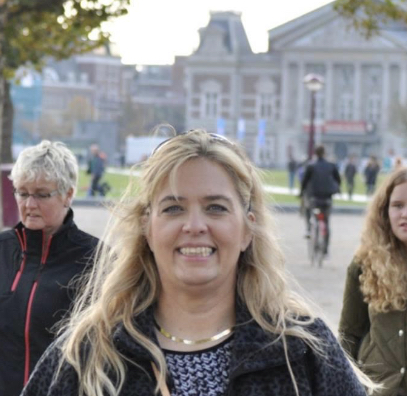
Comparing last year at this time to this year, our service revenue has dropped from 12% of our total, to 10%. However, many of our service tickets have turned into bike sales this year, and our service techs work as full-time sales team members on specific days. While we’ve kept our service rates the same, we are overhauling them in January 2021. We’ve already given all our mechanics raises, and I often buy them lunches and cold ones!
We have had numerous challenges with running out of parts and bikes to sell this year. As usual, there aren't any skilled mechanics to hire, and we certainly don’t have time to train anyone. If a manufacturer introduced something new tech-wise, we learned on the fly with the service tech from the company. Who had time to do anything else? As we move into the winter months, training our current staff on new technologies will be a priority.
BROOKLYN, N.Y.: Joseph Nocella, owner 718 Cyclery and Outdoors
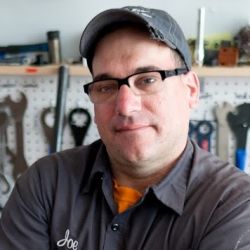
I am a one-person shop with no staff, and I don’t provide off-the-street service. Instead, I only work with the bikes I’ve built due to the size of my shop and my particular interests. I have seen the demand for service skyrocket, in terms of inquiries, and send service referrals to nearby shops like Bicycle Habitat, Red Beard, and Ride Brooklyn. For my own training needs, I have been digging into Shimano S-TEC and SRAM’s training programs more heavily.
SAN DIEGO: Mike Olson, owner Trek Superstore and Bike Gallery

Service as a percent of total business in my shops has gotten lower due to an overall increase in bike sales as a result of COVID-19. We expect this will change in the spring when our customers need bike tuneups and repair. We raised our service rates last year and will look into doing it again. On the compensation side, we paid bonuses to all staff (not just service people) during COVID, and we usually do yearly reviews in November. We’ll need to make sure our top mechanics receive top industry wages.
It's always been hard to hire good mechanics, and COVID made it even harder. Our new strategy is to start a builder/mechanic by paying them to learn to build bikes and do the basic tuneups that are a large percentage of our business, which frees up our more experienced mechanics to focus on higher value work. Online classes from industry brands have gotten better every year, and COVID has forced companies to accelerate that improvement. If it's well done, online training can be better and much more time- and cost-effective.
CHICO, Calif.: Kate Sage, bicycle technician, PerformanceBike.com and Nashbar.com
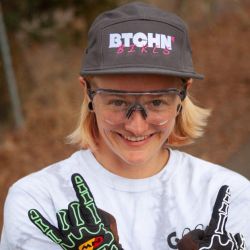
Service revenue at our retail shop has increased, but since sales have increased as well, the percent of total revenue from service is roughly the same. The biggest challenge to generating revenue through service continues to be supply-chain issues.
We implemented a hazard pay increase over the summer and that remains in effect at the shop today. For the online store, the hazard pay was replaced with a renovated pay structure that increased the starting rate as well as the technician rate. We want to be able to attract and retain the best talent in our area. All service rates and pricing structure at the retail store have remained the same.
Both our online and retail stores lost staff at the beginning of the pandemic. However, replacements were found relatively easily, and the online store has been able to attract new talent and increase the number of experienced bicycle technicians during this time.
Training has taken a back seat to keeping up with customer demand, but we still managed to have one technician attend the United Bicycle Institute, which is a short drive away, for two certification courses.

